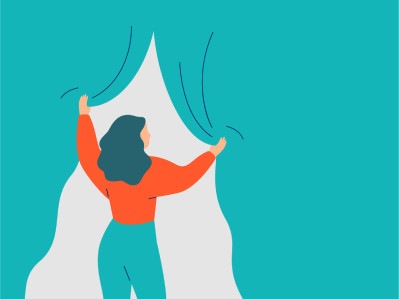Electroconvulsive Therapy
ECT is a medical treatment for severe depression, bipolar disorder and psychotic illnesses such as schizophrenia.
What is ECT?
Electroconvulsive therapy (ECT) has been used across the world as an effective treatment for some severe mental illnesses for many years. The value of this treatment is known internationally and the method has been improved in recent years to get better results and fewer side effects.
Modern ECT is safe for most people (exceptions are now rare) and for some conditions, ECT is the best and safest treatment option. ECT will not be given to anybody deemed unfit for treatment and your physical health such a cardiac condition will be assessed as a part of this. ECT is not painful.
A carefully controlled electrical current is passed through the scalp and induces a seizure throughout the brain, affecting the brain’s electrical activity and producing an improvement in depressive and psychotic symptoms.
Why do I need ECT?
ECT is good for major depression, mania and some forms of schizophrenia. In depression, it is particularly good for those people who are very depressed and those who may be suicidal. It is used in the treatment of depression when antidepressants have not worked. It is also used for patients who have bad side effects with antidepressants or whose medical condition means they can’t take antidepressants safely.
Your Doctor will discuss with you why ECT is the best treatment for you and what other relevant treatment options are available.
ECT can help you by treating your condition which may also help you in the lifting of depression and better thinking ability.
What do I need to do before ECT?
Before your procedure, you will need to have some tests including an ECG, chest x-rays, a physical examination, and a blood test(s). Your Psychiatrist will explain these tests and when to have them.
A second opinion is obtained from one of our psychiatrists on the ECT team .During this opinion the treatment procedure is explained and consent for treatment is completed.
Nursing staff will complete cognitive testing ,which is then repeated post your last treatment
You must fast (eat no food or drink any fluid or water) for several hours before the ECT treatment. If you do eat or drink anything during the fasting period it is important that you tell Nursing and Medical staff.
If there is any chance you may be pregnant please advise your Psychiatrist.
How is ECT administered?
Treatment takes place in the hospital's ECT Suite and only takes a few minutes.
You will have a short general anaesthetic so you will be asleep and not feel or remember the treatment. An Anaesthetist will give the anaesthetic. You will also be given a muscle relaxant to keep any muscle reaction to the ECT at a safe level.
A Psychiatrist who has specialised training in ECT performs the treatment. The Psychiatrist puts the treating electrodes to your scalp and passes a measured amount of electricity to a part of the brain to cause a seizure. The seizure will last about one minute.
During the treatment, the Anaesthetist will continue to give you oxygen via a mask and monitor your heart rate and oxygen level. You will be asleep during all of this treatment, which means that you will not feel or remember any of the actual treatment.
Within a few minutes, the anaesthetic medication will have worn off and you will wake up. During this time, you will be moved to the recovery room where you will monitored until you are awake enough to return to your ward (or wait to be taken home if you are having day procedure ECT). You will usually be ready for a meal about 15–20 minutes after the treatment.
The anaesthetic will affect your judgement for the first 24 hours following treatment. During this time YOU MUST NOT:
- Drive any type of vehicle
- Operate machinery including cooking implements
- Make important decisions or sign a legal document
- Drink alcohol, take other mind-altering substances, or smoke as these drugs may react with the anaesthetic drugs
What is a course of ECT?
ECT is usually administered two or three times a week. It is not possible to determine exactly how many treatments will be required. You will be reviewed regularly by your Psychiatrist to determine your progress. Some patients improve after three or four treatments others may need as many as 12 and very occasionally more.
Is there evidence that ECT works?
There is clear scientific evidence that ECT is effective in improving depressive and psychotic symptoms. Approximately 80 per cent of depressed patients who receive ECT have a good response. People commonly report that ECT makes them "feel like themselves again" and "as if life is worth living again."
Further information is available on ECT from The Royal Australian and New Zealand College of Psychiatrists, visit www.yourhealthinmind.org/treatments-medication/ect
